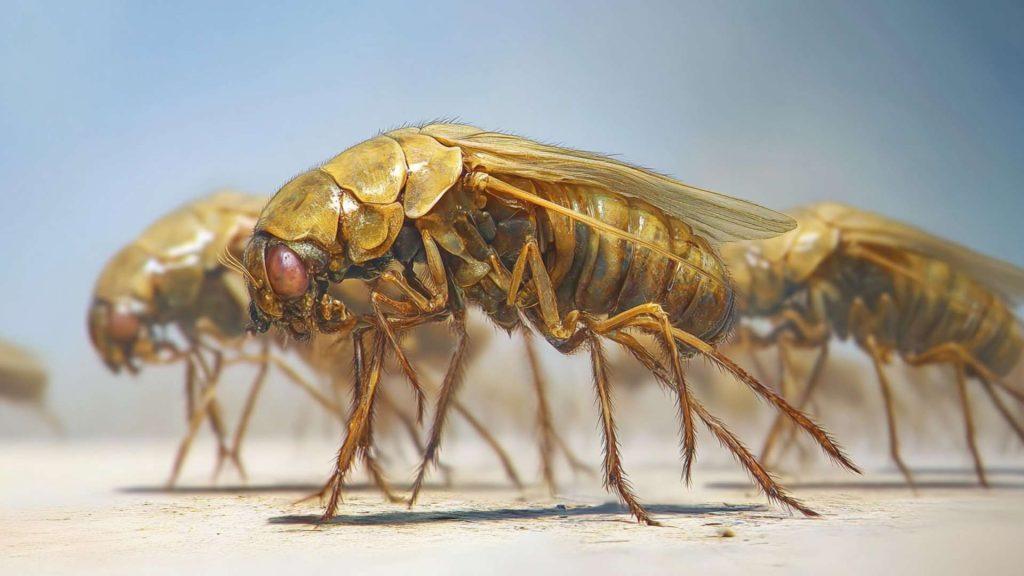There are many natural methods to repel wasps without the need for harmful chemicals. By using scents, plants, and certain household items, you can effectively deter wasps from your garden and outdoor areas. These natural repellents are safe for the environment and can help keep wasps at a distance without causing them harm. Below are some of the most effective natural ways to repel wasps.


What Repels Wasps?
Wasps are sensitive to certain strong scents and environmental factors that can drive them away from areas where they might otherwise build nests or search for food. Items like essential oils, plants, and common household ingredients create an environment wasps find unpleasant.How to Repel Wasps Naturally?
There are several strategies to repel wasps that don’t involve the use of pesticides or harsh chemicals. How to repel wasps naturally includes the use of essential oils, plants, and environmental management to make your garden or outdoor space less attractive to them.
Use Essential Oils as Natural Wasp Repellents
Essential oils are one of the most effective natural wasp repellents due to their strong scents, which wasps find overwhelming. Here are a few popular oils that can help keep wasps away:- Peppermint oil: Wasps dislike peppermint oil’s strong, minty aroma. Apply a mix of peppermint oil and water at areas where wasps are often seen.
- Clove, geranium, and lemongrass oils: A combination of these oils has been found to repel wasps effectively. Mix equal parts of clove, geranium, and lemongrass essential oils with water, and apply the solution around your home and garden. This mixture is particularly useful near outdoor dining areas or windows where wasps may enter.
- Citronella: Often used to repel mosquitoes, citronella is also effective against wasps. Plant citronella around your garden, or use citronella candles during outdoor gatherings to keep wasps at bay.
Repellent Plants
Planting certain plants can naturally repel wasps while adding beauty and fragrance to your garden. Some of the most effective plants that repel wasps include:- Marigolds: Marigold’s scent repels not only wasps but also other pests like mosquitoes and aphids. Planting them around your garden’s perimeter or near outdoor seating areas can help keep wasps away.
- Spearmint: Wasps dislike the scent of spearmint. Growing this fragrant herb in pots or garden beds near high-traffic areas can naturally deter wasps from building nests nearby.
- Eucalyptus: Eucalyptus has a powerful scent that wasps find unappealing. Planting eucalyptus trees or shrubs, or using eucalyptus oil as a spray, can help repel wasps from your outdoor spaces.
Vinegar and Water Mixture
A simple and effective homemade wasp repellent can be made using vinegar and water. Mix white vinegar and water and spray it around the areas where you see wasps, especially around windows, doors, and outdoor seating. The smell of vinegar is unpleasant to wasps, and it can help keep them away without harming them.
Decoy Wasp Nests
Wasps are territorial creatures and typically won’t build a nest near an existing colony. By hanging decoy wasp nests around your garden, you can trick wasps into thinking the area is already occupied. These decoy nests can be purchased online or made using paper or fabric. Hang them in areas where wasps are likely to build nests, such as under eaves, in trees, or on patios.Keep Food and Sweet Scents Covered
Wasps are naturally attracted to sugary foods and drinks, especially in late summer and early fall. Keeping outdoor food and beverages covered can significantly reduce the number of wasps in your area. Avoid leaving fruit, soda, or sweets uncovered, as this can attract wasps to your garden. Properly sealing garbage cans and cleaning up spills promptly will also help prevent wasps from being drawn to your outdoor space.Maintain a Clean Garden
A tidy garden is less appealing to wasps. Wasps often build nests in hidden or sheltered areas such as under eaves, in sheds, or in overgrown bushes. Keeping your garden well-maintained by trimming back shrubs, sealing cracks in walls, and keeping storage areas clean can help reduce the chances of wasps settling in. Regularly removing sources of standing water, such as puddles or birdbaths, will also make your garden less attractive to wasps, as they rely on water to survive. Myths and Facts About Natural Wasp Repellents| Myth | Fact |
| Vinegar alone is enough to repel wasps. | Vinegar can help deter wasps, but it’s best combined with other natural repellents like essential oils. |
| All plants attract wasps. | Certain plants like marigolds, spearmint, and eucalyptus actually repel wasps. |
| You need chemical sprays to keep wasps away. | Natural methods such as essential oils and plant-based repellents can be just as effective as chemicals. |
| Wasps only build nests in large trees. | Wasps will build nests in various places, including eaves, sheds, and even underground. |
| Wasps won’t return after their nest is destroyed. | Wasps may attempt to rebuild in the same area if it’s still a suitable environment for nesting. |


